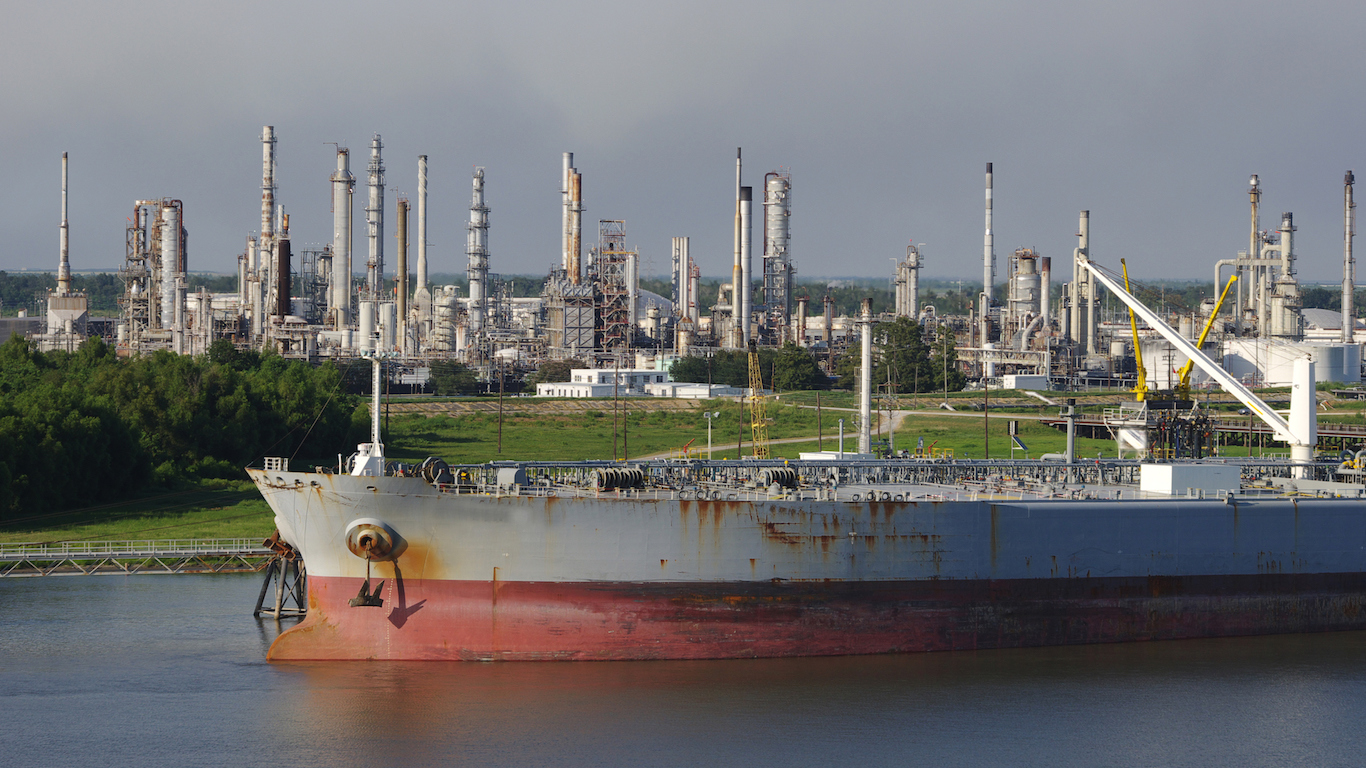Energy
Why the US Could Become a Net Exporter of Oil and Gas in the Next Decade

Published:
Last Updated:

Overall, the boom in U.S. oil and gas production over the past decade has been a somewhat moderating force on what is a large domestic merchandise trade deficit by helping reduce the country’s net petroleum imports. A new report by IHS Markit suggests that continued U.S. production growth is now on track to make the country a net exporter of petroleum for the first time since at least 1949.
The total U.S. merchandise trade deficit in 2017 was nearly $250 billion lower than it otherwise would have been if the petroleum trade deficit had remained at its 2007 level. IHS Markit projects that the U.S. petroleum trade balance will further improve by roughly $50 billion between 2017 and 2022.
U.S. production of liquids (crude oil and natural gas liquids) nearly doubled from about 7 million barrels a day (mbd) in 2007 to 13.0 mbd in 2017 and 14.8 mbd in the first nine months of 2018. Crude oil alone rose from 5.0 mbd in 2007 to 9.4 mbd in 2017 and averaged 10.6 mbd in the first 9 months of 2018, hitting 11.2 mbd in October 2018.
This rise, combined with a slight decline in domestic demand, contributed to a sharp fall in U.S. petroleum net imports as a share of total consumption, from a high of 60% in 2005 to 19% in 2017 and 14% in nine months of 2018.
Ultimately, the continued growth of U.S. crude oil and NGL production — along with relatively flat liquids demand — are expected to make the United States a net-petroleum exporter by early next decade, the report says. This would be the first time since at least 1949 that the United States was not a net petroleum importer.
Daniel Yergin, vice chairman, IHS Markit, commented:
The improved U.S. trade position in petroleum has been a counterbalancing force helping to keep the U.S. trade deficit in check over the past decade. The resurgence of domestic oil and gas production has flipped the trade position of several products along the energy value chain on their heads, while that of other products, such as crude oil, have been significantly reduced.
Retirement can be daunting, but it doesn’t need to be.
Imagine having an expert in your corner to help you with your financial goals. Someone to help you determine if you’re ahead, behind, or right on track. With SmartAsset, that’s not just a dream—it’s reality. This free tool connects you with pre-screened financial advisors who work in your best interests. It’s quick, it’s easy, so take the leap today and start planning smarter!
Don’t waste another minute; get started right here and help your retirement dreams become a retirement reality.
Thank you for reading! Have some feedback for us?
Contact the 24/7 Wall St. editorial team.